Home » Session 6: Initiating a Collaborative and Networked Food System in Hong Kong
Sustainable Urban Food Systems and a Collaborative Initiative in Hong Kong
Session 6: Initiating a Collaborative and Networked Food System in Hong Kong
As a melting pot of Eastern and Western cultures, Hong Kong has highly diverse and inclusive food scenes, ranging from indigenous produce and products to South China everyday diets and international cuisines. However, in the process of rapid urbanisation and drastic economic restructuring in the past few decades, the once dominating agricultural and fishery industries have diminished dramatically. Despite having a large land area zoned for agricultural purpose, only 2% of the vegetables Hong Kong people consume are locally produced. Several major disconnections in Hong Kong’s food system are identified:
- Being an import-led food system, food production and consumption are geographically divided;
- Many Hong Kong citizens are food illiterate and have lost their connection with real food and the natural environment;
- The social bonding created through food culture has been weakening as many families do not have meals together daily, and cooking is no longer a daily necessity;
- Domestic cooking knowledge and skills, including that of traditional food making, have been diminishing especially among youths due to reliance on domestic helpers; and
- With a diminished local agricultural industry, there is no circular economy to reuse organic wastes.
The Centre for Civil Society and Governance at The University of Hong Kong endeavours to contribute to improving and transforming Hong Kong’s food system and has been engaging in the local food system since 2013 through its “HSBC Rural Sustainability” programme which collaborates with different sectors in the society to revitalise desolate farming villages in Hong Kong using a rural-urban collaborative approach. It aspires to restore and enhance the vitality of Hong Kong’s food heritage and to advance the conventional linear food supply chain into a networked food system where community stakeholders are re-positioned for a synergistic and participatory rural-urban integration.
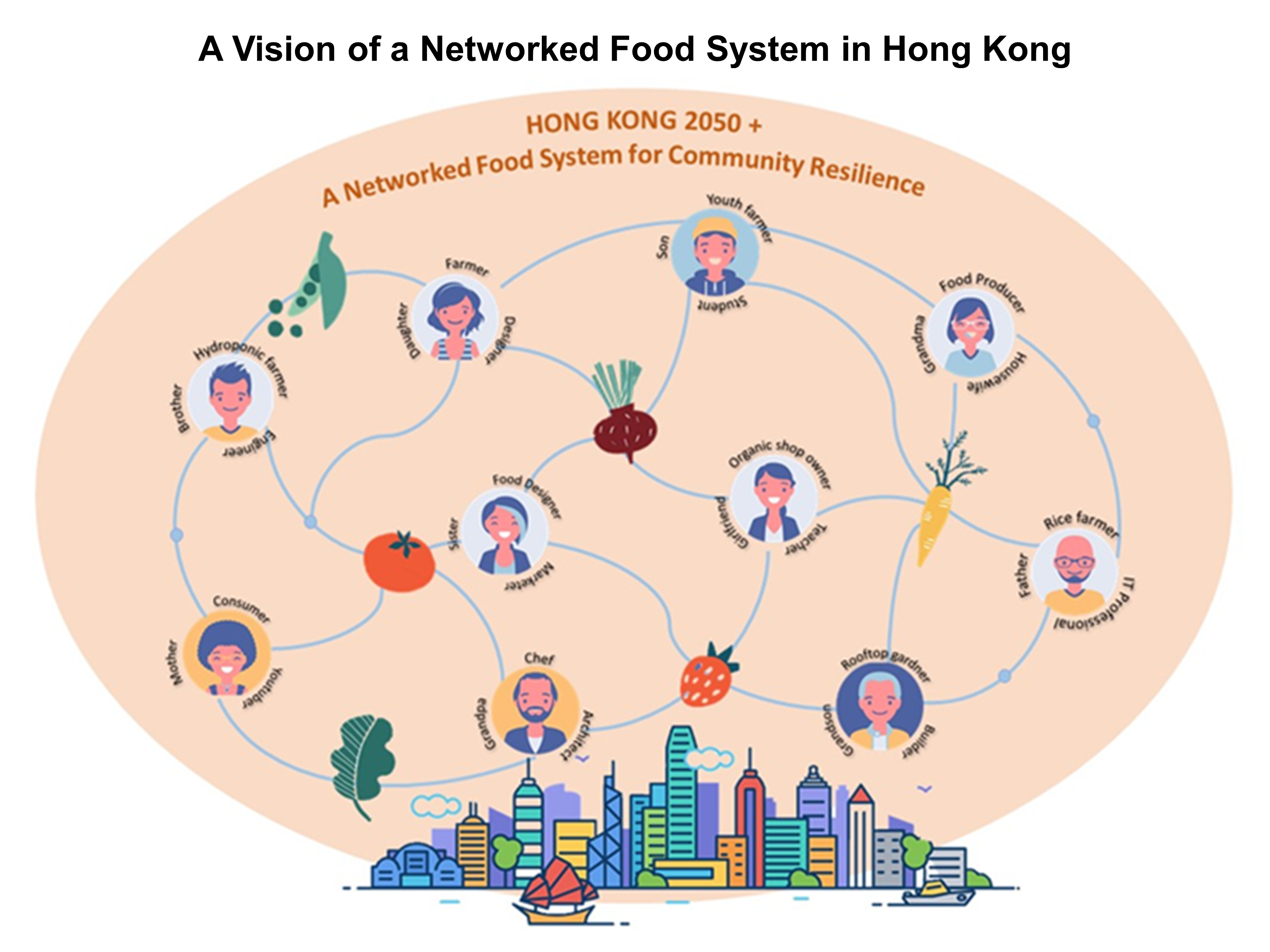
Upholding the sustainable food system principles in all dimensions: diverse and resilient, democratic and empowering, and socially and technologically innovative, the Centre for Civil Society and Governance has been developing the eco-agriculture and co-kitchen socio-economic models in the process of revitalising Lai Chi Wo, an abandoned historical Hakka village in Hong Kong.
Eco-agriculture Model
By connecting farmers and landowners with ecologists and farming experts, six hectares of abandoned terraced farmlands in Lai Chi Wo have been revitalised using eco-friendly agricultural approaches. Both the economic and conservation values of the farmlands have been enhanced as a result.
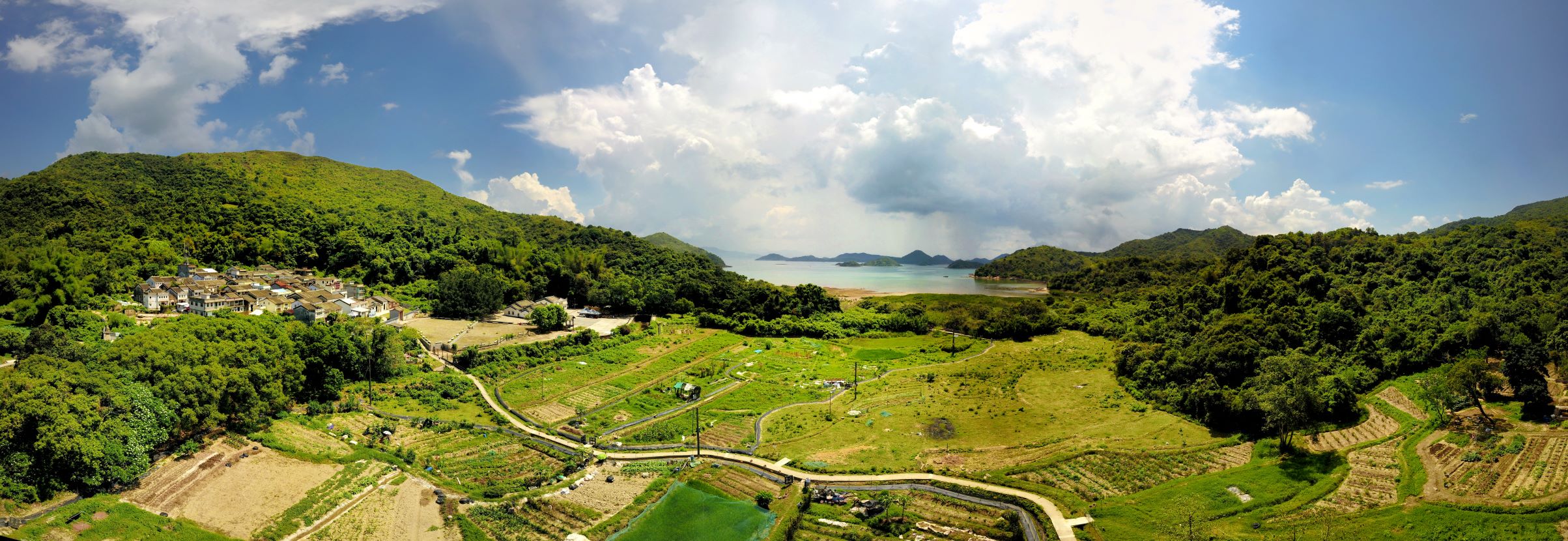
An experimental farm has been set up in Lai Chi Wo Village as a field base for eco-production incubation, agro-ecology research, farm apprentice training and public education. Experiments of multi-layer farming and intercropping, crop rotation with green manure, and local agroforest coffee trial are underway. The coffee farm has become the largest one in Hong Kong. Systematic monitoring and data collection for the agroforestry study have been conducted to provide insights to the farming industry and the habitat management agencies on the best practice of achieving the dual objectives of farm production and nature conservation. Initial findings from the agroforestry research indicated the development opportunity of nature‐friendly certification system and active conservation through farming. With the involvement of ecological researchers, the project is developing a set of eco-agriculture standards for Hong Kong.
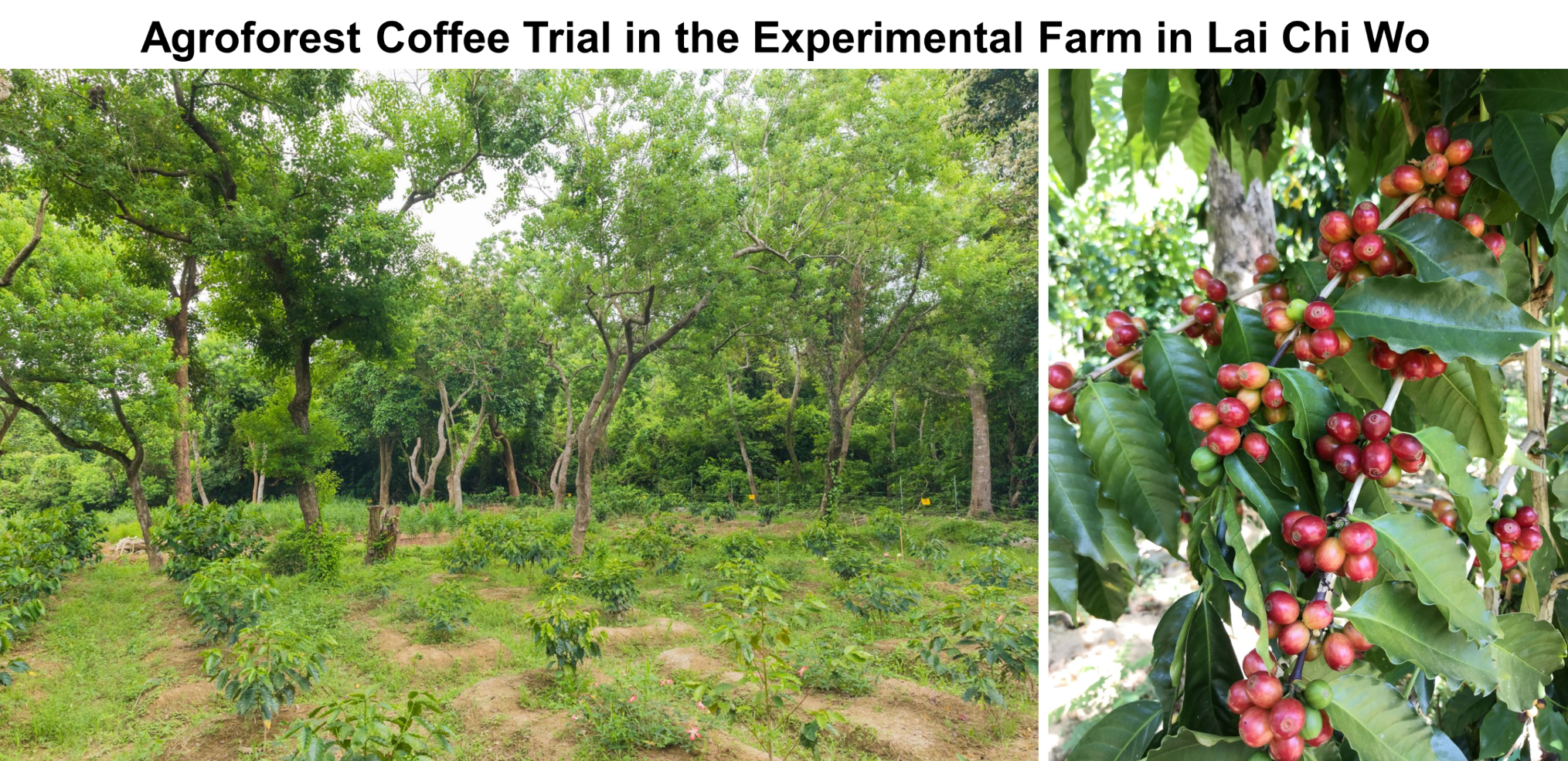
Some of the young farm apprentices graduates have setup their own farm at Lai Chi Wo. With the farmland revitalisation, economically viable rural start-ups have been incubated, including 11 community farms and five local product brands. A local farmers’ market has been established, with Indigenous villagers, new settlers and some urban dwellers selling a large variety of produce and products.
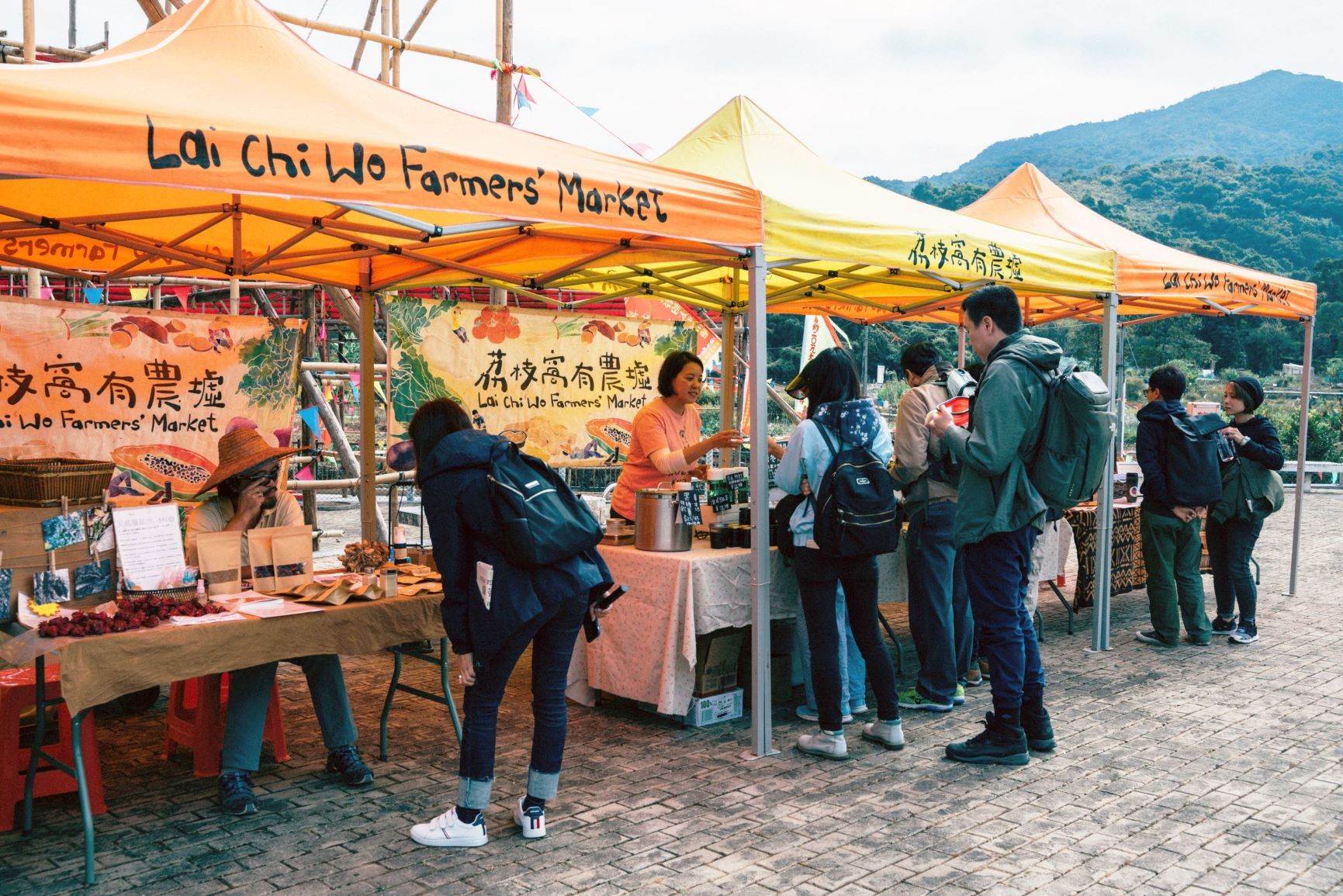
Co-kitchen Model
The co-kitchen model gathers farmers, producers and suppliers to co-develop a local food supply chain to enhance the diversity and branding value of local agriculture products. A licensed sharing kitchen named “LoCoKITCHEN” has been established in Sha Tau Kok as the first agro-food social innovation platform for interested farms and community members to jointly work on food processing so as to add market value to the crops and develop the unique “made in Hong Kong villages” brand for the locals.
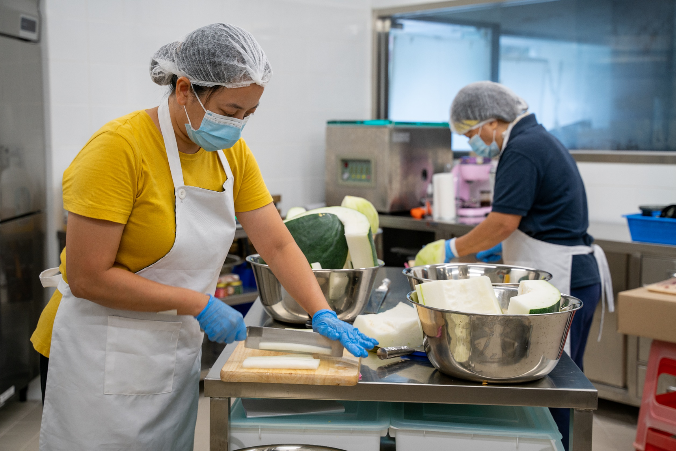
New product development and production as well as new storing methods and recipe research are both underway. A new social enterprise “FarmShare” has been incubated. A processing team of local women has been formed to support the processing of local produce. A series of locally‐processed products has been developed adopting a community collaborative approach. Branding of the products highlights the importance of “locally grown and locally made”. The products are sold at a variety of markets and stores as well as through online channels.
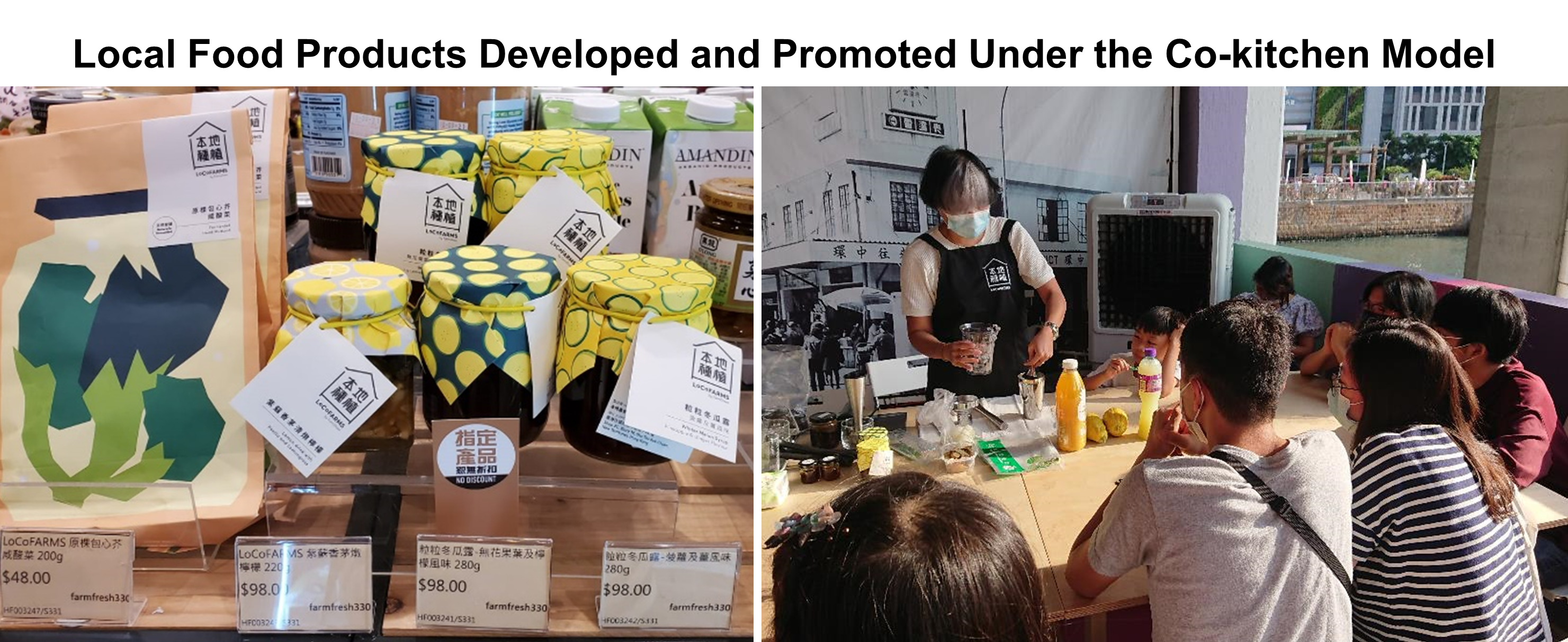
By engaging a macrobiotics teacher and a local organisation which advocates community supported agriculture, a local agro-food challenge pilot scheme has been launched to provide basic training, R&D support and tasting gathering for participants to develop their ideas on local farm products into prototypes. The scheme is helping food producers and processors overcome social stigma, knowledge gap, legal obstacles and other barriers that prevent them from entering the mainstream economy. The co-kitchen will help establish a new brand of these local farmers and producers which can increase the selling price of their products, their recognition and awareness of local food production.
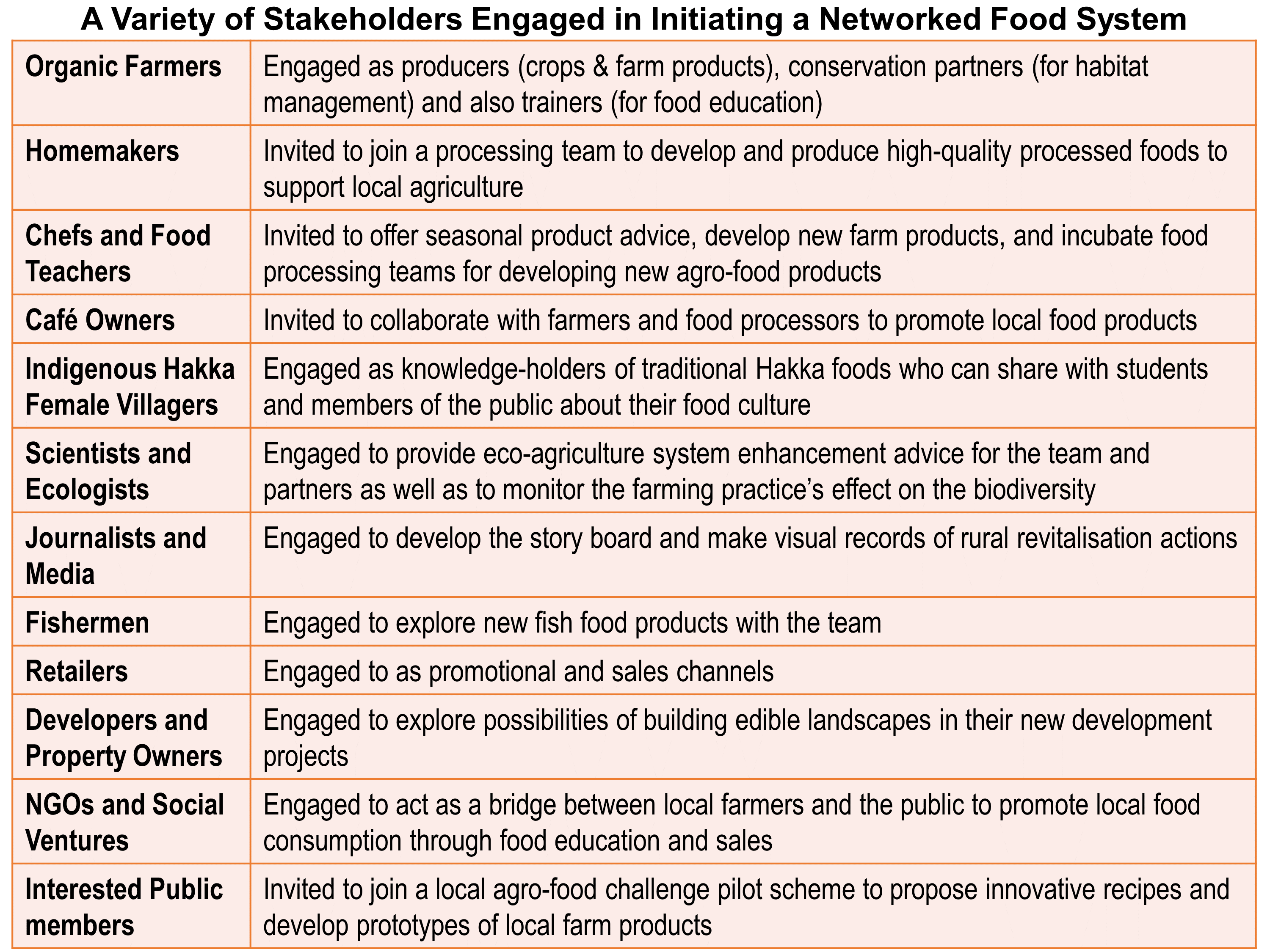
The Centre for Civil Society and Governance’s proposed food system platform development aims to bridge the disconnects by creating and facilitating new interactions among stakeholders along the food supply chain in the food system. The stakeholders concerned include production-scale and household-based farmers, food processing individuals and stations, wholesalers and retailers of different scales, chefs and home-makers, branding and marketing personnel, and consumers. Each stakeholder group is expected to offer their respective knowledge, skills, ideas, services and products to the food chain contributing to the common vision of co-creating new value for the food system. With collaborative and networked actions in the society, Hong Kong’s food resilience will be enhanced with sustainable food production and consumption; holistic well-being living will be promoted, and the relationship between people and nature and among communities will be improved.
© 2019 Centre for Civil Society and Governance at The University of Hong Kong
Except where otherwise noted, contents of this e-case is licensed under a Creative Commons Attribution-NonCommercial-ShareAlike 4.0 License.
![]()


